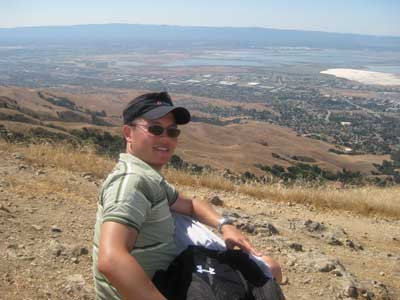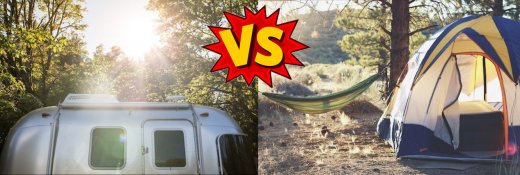
Camping is a lot of fun, no matter how you do it. Whether you’re roughing it in a tent or opting for the more luxurious choice of a trailer, you’re going to have a great time experiencing the great outdoors.
That being said, there are quite a few key differences between camping in a tent and camping in a trailer that you need to consider before making your trip.
In this article, we are going to go over the pros and cons of tent camping and trailer camping so that you can decide which is best for you.
The Lowdown: Should You Choose a Tent or a Trailer?

This article is going to get into the nitty-gritty of the tent/trailer debate. However, I want to start off by giving you a quick summary of what each camping style has to offer.
You should choose a tent if you are looking for the full camping experience, are looking to spend less money on your camping trip, and want to be able to camp anywhere.
You should choose a trailer if you want to be more comfortable during your camping trip, you can afford to spend a lot more money than you would for a tent, and you don’t mind missing out on some of the joys of roughing it like sleeping outside and not having electricity.
Tent Camping Pros and Cons
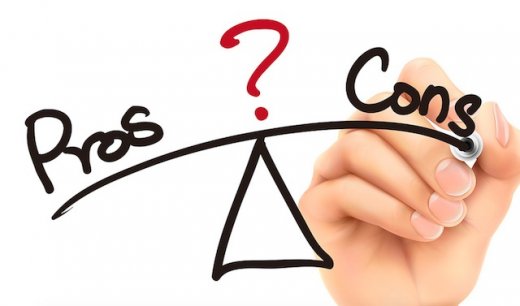
Tent camping is the most popular form of camping. There’s something special about getting out into nature and being away from it all. It awakens a sense of adventure, and you can go out to places where only those who are willing to rough it can make it to.
This section is going to discuss the benefits and downsides of tent camping.
Tent Camping is Affordable and Lightweight

One of the advantages of tent camping is that it is available to everyone.
Anyone can get set up with basic camping gear for about $200 or even less. The two basic things you need are a tent and sleeping bag.
Once you’ve covered these two essentials, you can then add other items to your camping setup, such as a sleeping pad, camp stove, cooler, flashlight, shovel, and cooking utensils. Don’t forget to bring food and water with you too. You should also make sure to bring the right clothes for the occasion.
In addition to being relatively cheap, most tent camping equipment is also light and easy to pack. Some lightweight camping setups weigh less and ten pounds. This is a big plus if you plan to hike long distances to your campsite.
You Can Camp in Places a Trailer Can’t Access
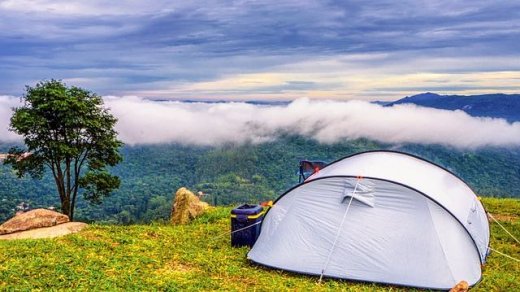
The ability to camp anywhere in the wild is the biggest advantage of tent camping. Sure, camping in a trailer is comfortable, but can you bring your trailer to the top of a mountain? I don’t think so.
When you’re camping in a tent, you can stay in a developed campground with other campers or go out into the wild and find your own spot with no one around for miles. You’re not limited to developed campgrounds that have the right facilities for a camper.
Let’s say you want to camp in the mountains. Any mountain or hilly terrain is going to require you to have a tent if you really want to explore and camp in a special place.
There will be places for trailers at the base of the mountain sometimes, but if you want to wake up to a truly gorgeous sunrise high above the earth, you’re going to have to hike up and set up your tent.
There’s Something Special About Roughing It
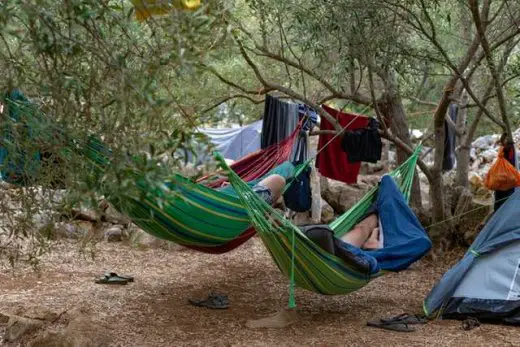
In the modern age that we live in, our connection with the way humans lived in the past is almost gone.
Camping in a tent allows you to reconnect with your primal side. When’s the last time you caught the sunrise or gazed up at a starry night’s sky and saw a shooting star?
These activities are becoming all too rare in this day and age. Tent camping enables experiences that can really light up the soul and give us a sense that there is more to existence than our 9-5 jobs and living comfortably.
You are forced out into nature when you camp in a tent. Sometimes the transition out of comfort is hard at first, but it is worth it for what you can experience.
Tent camping also won’t give you the temptation to hide from the elements the way an RV or a trailer can.
Anyone who has been on a rainy camping trip knows what a bummer it can be. They may also know the joy of bonding with your loved ones, playing cards in a tent all day while escaping the miserable rain.
You can have a similar experience camping in a trailer, but it’s not quite the same. There is also the chance that you’ll just end up watching movies all day if your camper has a TV.
No Distractions
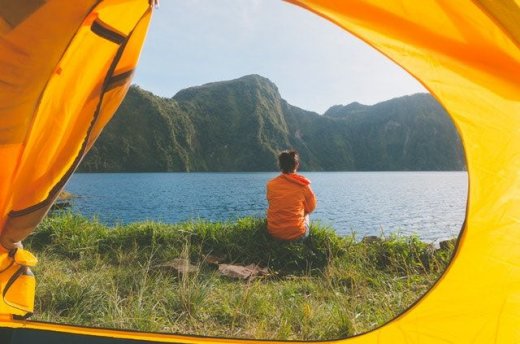
We live in a world of endless distractions. Between our phones, TV, the internet, and having to keep our lives running, our attention spans have been spread thin.
To add to this, we are also in the middle of a mental illness epidemic, and certain psychological disorders are being attributed to our use of technology such as smartphone addiction and nomophobia.
Tent camping gives us a break from the constant distractions that plague our modern existence. Be careful, though; excessive smartphone users have been observed to show withdrawal symptoms when separated from their smartphones. It is also possible to retreat from distractions with a trailer or RV, but it’s not as easy. Having electricity and other amenities such as TV and satellite internet may tempt you.
You have to get away from it all when you are camping in a tent with no electricity. This may be unpleasant at first, but trust me, it’s worth it.
There is so much more to life than using our phones or watching TV. It may seem boring at first because of the lack of constant stimulation, but after a few days, you’ll get used to it and even more in tune and connected.
Rather than watching Netflix in the evening, tent camping forces you to sit around the fire pit and watch the flames dance and the embers fly. You can tell stories, have fun with those you are closest to, and even lay out under the stars when it’s a clear night.
Not Ideal for Road Trips
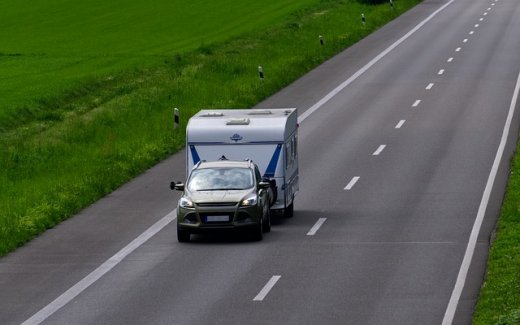
Tent camping is not ideal for road trips. This is one of the biggest disadvantages of this way of camping.
Road tripping is such a fun way to travel, especially when you have a good chunk of time to devote to it. Don’t get me wrong; it is still possible to road trip and sleep in a tent every night.
It is going to be a hassle, however. Setting up your tent takes up a lot of your time and energy every night. You will also be limited in the places you can visit and things you can do if you have to find a place to pitch your tent every night.
You will have to avoid cities completely, and you won’t be able to sleep at rest stops or travel centers the way you can in a trailer or RV.
However, you might be able to find a new campsite at every new location on your road trip. It is definitely possible if you plan ahead. This will get tiring, though. There is a good chance you will end up staying in hotel rooms some nights instead of campsites, which can make your road trip significantly more expensive.
The way to get around this is to have a vehicle that you can put a temporary bed in the back of. Vans, SUVs, hatchbacks, and trucks with camper shells are all great vehicles for sleeping in. This will allow you to sleep in rest areas and in parking lots when you are in urban areas and then sleep in your tent when you are camping.
Less Food Storage

Less food storage is another downside to tent camping. You will have to bring less food with you because you might have to carry your food to your campsite. Most of your meals will also be plain and simple, so make sure you don’t forget your hot sauce!
It is possible to camp close to your car at certain campsites. You can bring a lot more food in this case and still eat pretty well. However, it still won’t compare to a trailer or RV where you will have a refrigerator, oven, stovetop, and maybe even a barbecue grill to cook with.
Tent Camping is a Lot of Work
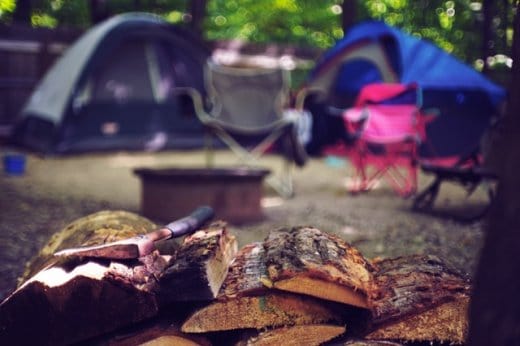
There is a lot that goes into camping in a tent.
First of all, you have to have all your gear packed up and ready to go. Then you have to haul it all out to your campsite and set it up. Packing up can also be a hassle when you’re ready to move to your next campsite or go home. If conditions were wet, your gear might be soaked, making it even more of a pain to pack up.
Trash is also an issue. Whatever you brought with you needs to be packed out. You’ll need to bring bags for this purpose, and you’ll need to save enough space in your pack to place the filled bags in.
Going to the bathroom will be more difficult as well. Number two in the wild can be quite the task. It is important to bury your waste so that dogs or wild animals don’t get into it and make a mess.
Doing this can be quite a hassle in the middle of the night. Who wants to leave a warm and cozy sleeping bag to go out into the cold dark night?
Trailer Camping Pros and Cons
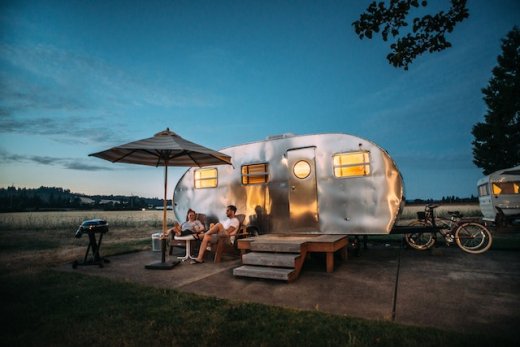
Trailer camping is the much more luxurious version of camping. It allows you to bring the comforts of city living with you into the wild to explore nature.
Some people say that trailer and RV camping isn’t real camping. However, this view is pretty limited and probably comes from people who don’t know how to do trailer camping the right way.
Trailer and RV camping can undoubtedly limit your trip in certain ways and add a lot of extra distractions. On the other hand, a trailer or RV can also add a lot of extra options and comforts to your camping trip.
In this next section, we’re going to go over the pros and cons of camping in a trailer or RV.
You Can Take the Comforts With You
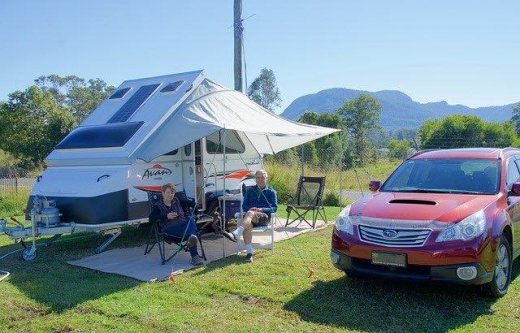
Let’s face it; not everyone wants to rough it.
Some individuals have no interest in sleeping in a tent and never will. Others are simply scared of sleeping outside. There are bears and mountain lions and coyotes and bugs and raccoons and all other manners of wild pests that might disturb you or even put you in danger.
Any seasoned camper knows that these fears are usually overblown, but they do have some merit as there are freak accidents that do happen.
Camping in a trailer or RV might be the first step in overcoming one’s fears of the great outdoors.
There are also elderly people who developed a love of camping when they were young and strong but no longer have the vitality to carry heavy gear and sleep on the ground. A trailer or RV will allow them to continue to get out into nature many years past the time that their bodies will allow them to camp in a tent.
Great for Group Camping Trips
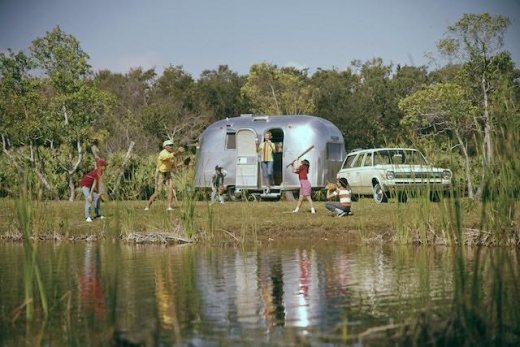
Going for a weekend trip with a big group of friends or taking a week-long family reunion camping trip? Having an RV or trailer along can make the experience more comfortable and more fun for everyone.
Some of your group may still have to camp in tents, but having a trailer or RV will give you a lot of extra options.
First of all, you’ll have a toilet that everyone can use. The toilet may only be able to accommodate a certain amount of people, but you’ll at least have it for emergencies or if anyone gets sick. The rest of the time, people can go number two the good old fashioned way.
You’ll also have a shower that can be shared. You may have to ration out your showering water if your campsite does not have hookups, but having access to a shower is a luxury that cannot be overstated when you’re out in the wild.
Mealtime is also going to be a blast if you’ve brought your trailer along. Bring a barbecue with you, and everyone will have a good time grilling. You won’t have to worry about grabbing coolers and ice if you bring a refrigerator along.
Also, if you have members in your group who are not as comfortable with camping, they can still make it to the camp out because you’ll have a place in the trailer or RV for them to sleep. Those in your group who are more accustomed to roughing it can stay outside the camper in tents.
Eat Like a King

Your mealtime options will open up greatly with a trailer or RV. You are often limited to granola, sandwiches, and hot dogs when camping with a tent.
However, you can bring whatever food you like when you go camping in a trailer or RV. The oven and stovetop will allow you to cook almost anything. You could even bring along a slow cooker if you wanted to get fancy with it. Start your meal in the morning and come back from your day of outdoor fun to a nice slow-cooked meal.
I highly recommend bringing a barbecue grill with you on your camping trip. Grilling up burgers at your campsite is a lot of fun and makes for a delicious meal.
It should also be mentioned that your food will be much safer in a trailer or RV. Bears and other animals getting into your food can be a real problem when you are tent camping. Sometimes these animals will even tear through your tent to get to the delicious human food. This is not a problem when you have your food safely locked up inside your trailer.
This article is owned by Recapture Nature and was first published on February 29, 2020
Accommodate Different Standards of Comfort
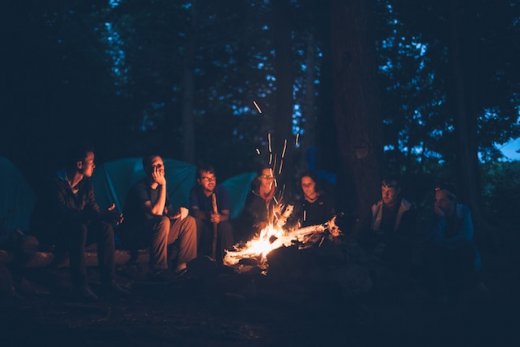
You can accommodate different standards of comfort with a trailer or RV. Some people like solo camping, but let’s face it, camping with friends and family is a lot more fun.
A trailer or RV will allow you to bring along your less hardened campers without too much trouble. Most trailers and RVs can sleep many people. Commonly, you can fit at least six people.
Let’s say you love the great outdoors, but your wife or husband isn’t on board. Or maybe you have kids who aren’t ready to go on a hardcore camping trip.
Purchasing a camper will allow you to go on outdoor excursions that you love and bring the family along as well. They can hang back at camp while you’re out roughing it.
You might also be an avid camper that would really like to bring your friends camping with you. Your less outdoorsy friends will be much more likely to come to your weekend camping bonanza if you’ve got a trailer for them to hang out in.
Less Work Setting Up Camp
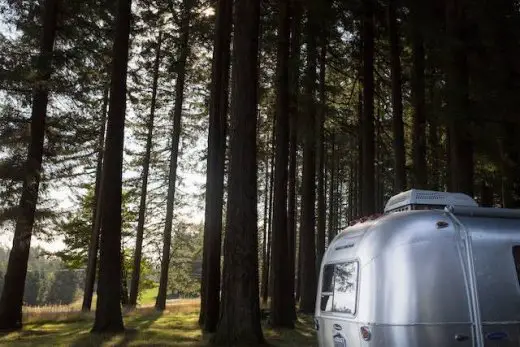
Setting up camp is much quicker and easier than setting up your tent and getting camp ready.
With certain campers and level ground, you don’t have to do anything to set up your camp. Just pull up, and you’re ready to start having fun.
You may need to level your trailer or RV with jacks or leveling blocks if the ground is unlevel. If you have a really fancy trailer or RV, it may take a little time to set up the pull out sections and get everything hooked up and squared away. This usually won’t be more than 30 minutes to an hour.
Great for Road Trips
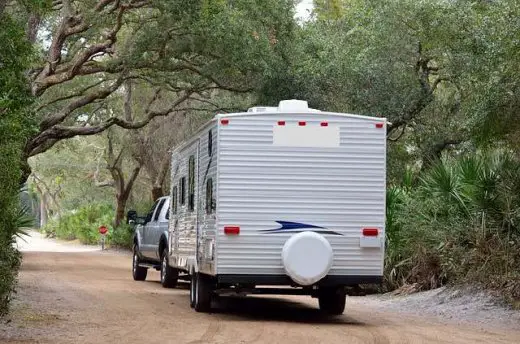
Trailers and RVs have a huge advantage over tent camping when it comes to road trips. There are so many more places that you can park and sleep for the night when you have a trailer or RV. Most cities will also have places that you can park. Walmart and Home Depot are two examples.
Rest areas will also be available for you to park in and sleep overnight. You will be able to save money this way and sleep comfortably in a space that you are familiar with. This is not an option for tent campers who are forced to find a place to camp every night.
You Can Still Tent Camp
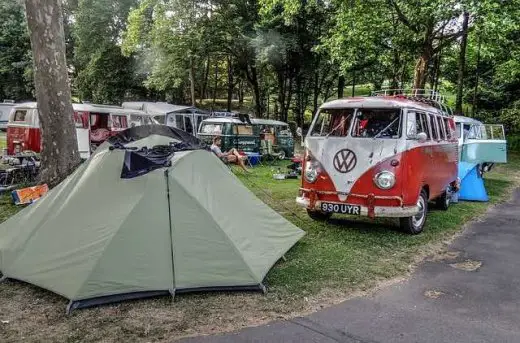
Tent campers that hate trailers and RVs are just jealous. Having a trailer or RV doesn’t mean that you can’t still sleep in a tent at night. In fact, many avid explorers will travel around in their camper and use it as a base camp. They leave the trailer behind to hike to campsites that are inaccessible to a trailer or RV. It really is possible to have the best of both worlds.
Having both a trailer and a tent is ideal when you will be traveling to many different locations on a backpacking tour. This will allow you to go on several different expeditions and also have a comfortable place in between.
A cozy cushy camper where you can relax and watch Netflix is going to be really nice after three days of hiking and roughing it. If you’re going to move on to another adventurous trip, it’s good to have a break in between.
A Trailer or RV Can Distract You From “Real Camping”
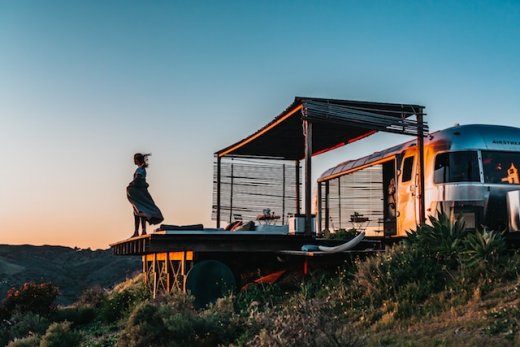
Some people still look down on trailer and RV campers and say that using them is “not real camping.” I want to dispel this myth but also go over why some people have this conception.
As I’ve explained above, it is absolutely possible to go camping in a trailer or RV and still get the full or even an enhanced camping experience.
This article is owned by Recapture Nature and was first published on February 29, 2020
That being said, the trailer or RV may be a trap for some campers. They may end up being held back from getting the full experience. You will not have the option to run away from the wild when you are camping in a tent.
This option will always be available to you if you are camping in a trailer or RV. Less disciplined campers may be tempted to hang out inside and watch movies all day or be on their phones. This would be a shame because there is so much that nature has to offer us.
Some of us are addicted to our modern lifestyles. The modern world has given us so much, but there is also a lot of our human experience that we are now missing because of it.
Going into nature and getting away from modern technology can be very pleasurable and even healing. It would be a shame to miss out on this because you have brought modern technology with you.
Some campers are able to handle having comfort and technology along with them. They are still able to get a full camping experience. Other campers are too addicted to modern comfort and technology to be able to fully settle into the beauty of nature with access to their addiction close by.
This is why some people think of RV and trailer camping as not real. It is because some aren’t able to have a real camping trip with a trailer or RV around.
Your Campsite Might Be Crowded
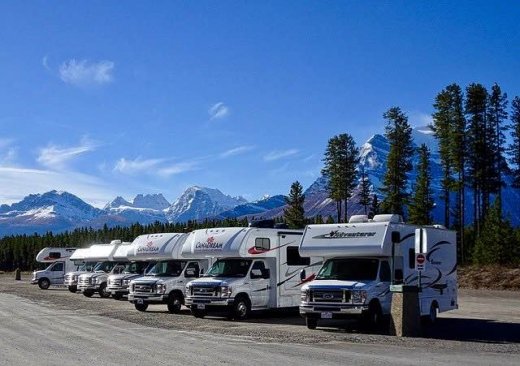
Trailers and RVs are often confined to campgrounds that have the amenities to support them. This is not always the case as many camper aficionados that Boondocking, which means parking your camper in unestablished campsites.
A crowded campsite is not necessarily a bad thing. Having neighbors will give you ample opportunity to socialize and make friends. You might even start traditions where you and your new camping friends meet at the campsite where you first met every year.
For some, however, camping is a way to get away and enjoy peace and solitude. This is going to be harder to do at established campsites. As mentioned above, you always have the option to go boondocking if you want to be alone in the middle of nowhere. You will just have to forego going to the most popular campsites.
Trailer Camping is Expensive

Trailers and RVs are expensive. A new RV can cost between $10,000 and $300,000.
You can always go the used route, but that is risky. A used trailer or RV might break down, and mold is a common problem as well. This article would probably be a no brainer if trailers and RVs were cheap. Of course, you would want to have one for your camping trip. There would be very little downside. That is not the case, however.
There are other expenses besides the cost of purchasing a trailer or RV. Upkeep is important. Trailers and RVs have many different appliances and parts that all need to be maintained. Leaks need to be fixed, and many electrical components are a risk for problems that will need to be fixed.
On top of all that, trailers and RVs need to be taken care of every month. Leaving an RV without checking on it for long periods will attract rodents, mold, and insects. Many trailers have been ruined by neglect.
On top of all that, gas is very expensive. Trailers and RVs can have a gas mileage rating of anywhere between 7-20 mpg. In my experience, most get between 10-15 with the higher mileage trailers and RVs being very expensive.
Conclusion
Tents and trailers both have their benefits and downsides. The mode of camping you choose will depend on your outdoor preferences and your budget.
This article is owned by Recapture Nature and was first published on February 29, 2020
If you enjoy roughing it and don’t want to spend thousands of dollars on camping gear, then tent camping is your best bet. However, if you prefer comfort and have money to spare, trailer camping is the better option.

